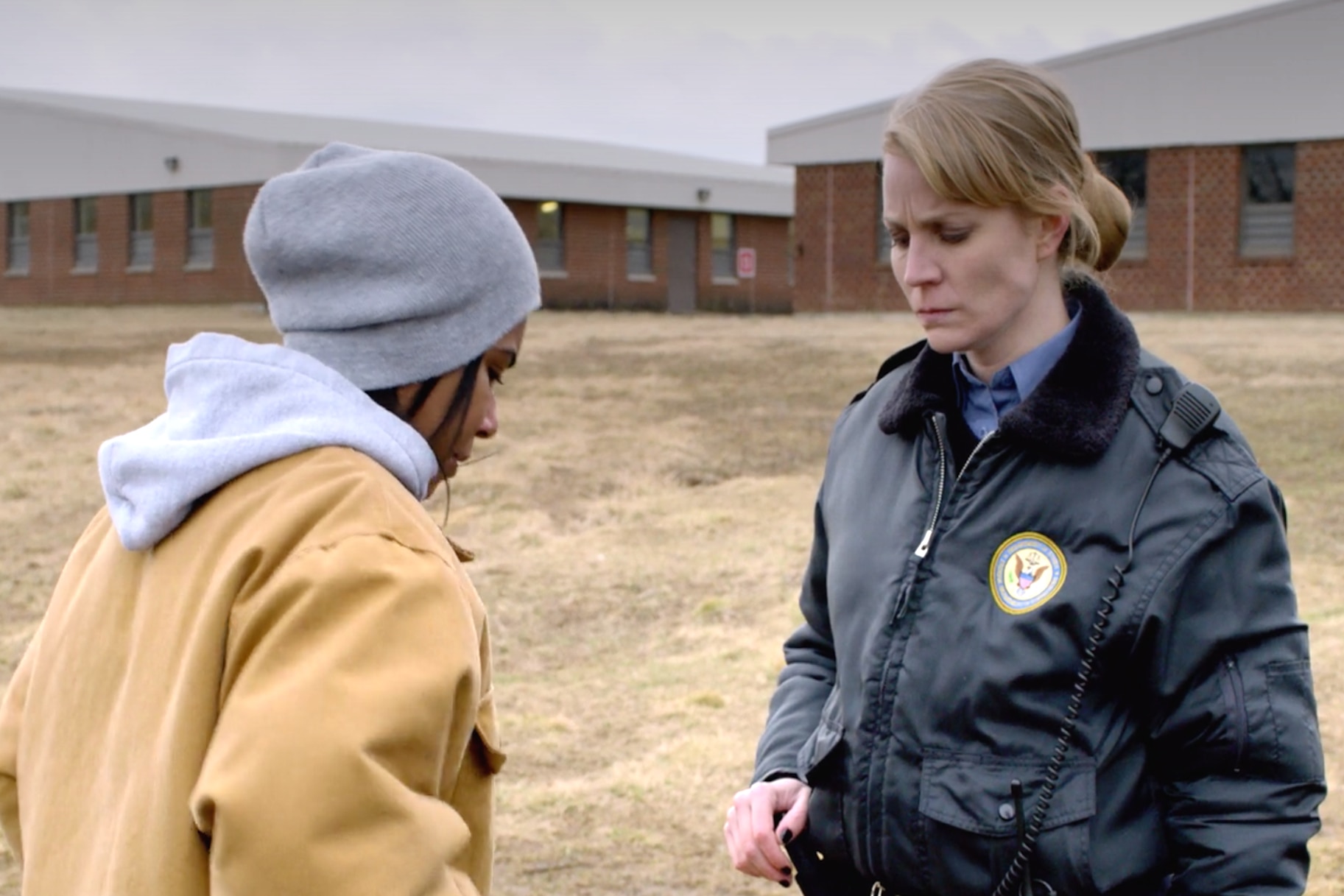Create a free profile to get unlimited access to exclusive videos, breaking news, sweepstakes, and more!
Inmates Aren't The Only Ones Facing Prison Trauma — Correctional Officers, Like Artesian McCullough From 'Orange Is The New Black,' Also Suffer
Jailhouse guards experience PTSD symptoms at rates nearly 40 percent higher than other professions.

In the sixth season of Netflix's "Orange is the New Black," several characters are recovering from the psychological scars left by the violent Litchfield penitentiary riot one season before. The incarcerated members of the show's cast, undoubtedly, are traumatized by their abuse at the facility — but correctional officers at the jail are also left battling personal demons.
While Luschek and Blake seem to bounce back easily after being held hostage during the mutiny of season 5, CO McCullough (Emily Tarver) struggles to comport herself to her new role at the maximum security facility. Finding little sympathy from her cohort, McCullough reports nightmares, anxiety attacks and unmitigated anger throughout the latest episodes.
Indeed, real-life correctional officers face post-traumatic stress disorder at alarming rates. While recent social-justice endeavors often focus, rightly, on the mistreatment of prisoners, the mental well-being of prison staffers is often overlooked.
It's no surprise, then, that prisoners suffer at the hands of guards who are also suffering.
Corrections officers deal with PTSD at twice the rate of military veterans in the United States, according to Caterina Spinaris, the leading professional in corrections-specific clinical research and founder of Desert Waters Correctional Outreach, a nonprofit based in Colorado. The suicide rate of COs is also twice the rate of both police officers and the general public, Spinaris told The Guardian. The suicide risk for COs was 39 percent higher than all other professions combined.
A 2018 University of California study on the mental health of COs suggests that one in 10 prison guards have contemplated suicide, a rate three times higher than the U.S. population at large, according to CBS News. The same study concluded that half of correctional officers expressed at least one symptom of post-traumatic stress disorder. Every CO surveyed for the study had seen prisoners who’d been recently beaten or sexually assaulted inside the prison, and more than half of the study’s participants had watched an inmate die.
“We need more research,” said Amy E. Lerman, an associate professor of public policy and political science at Berkeley, and lead researcher of the Correctional Officer Health and Wellness Project, to The Marshall Project, a nonprofit news organization covering the U.S. criminal justice system. “We need to know what works, and what type of investments makes a difference.”
In a 2015 series of interviews with The Guardian, COs discussed how they saw their personalities changing as a result of their work.
“You almost become non-human, robotic, emotionless,” said Charles Ewlad, the warden at Riverhead correctional facility at the eastern end of New York’s Long Island, to The Guardian. "People came to work hammered every day. That was the deal.”
Officers in the interviews also discussed the hypervigilance the job requires with periods of extreme boredom punctuated by brief explosions of intense violence, the impact of which often carried over to their personal lives.
“We go into a place where we have control, but yet we don’t have control, because the inmates let us run the prison," said Michael Van Patten, a CO who had attempted suicide, to The Guardian. "If they wanted to, they could take it. They’re compliant until they choose not to be."
Similarly, COs often do not undergo the same psychological evaluations that would allow them to get treated for their conditions due to a variety of sociological and economic factors, including a culture that does not allow for open and honest discussions of mental health and a lack of resources for those who even attempt to seek aide.
“They won’t get diagnosed because of the stigma,” added Van Patten. "You can’t change a culture over night."
In "Orange is the New Black," the storyline of McCullough's mental health remains unresolved by the conclusion of season 6. Looking forward, it will be intersting to see if the character's condition spirals out of control — or will she instead seek the treatment she clealry needs?
[Photo: Screenshot via Netflix]

























